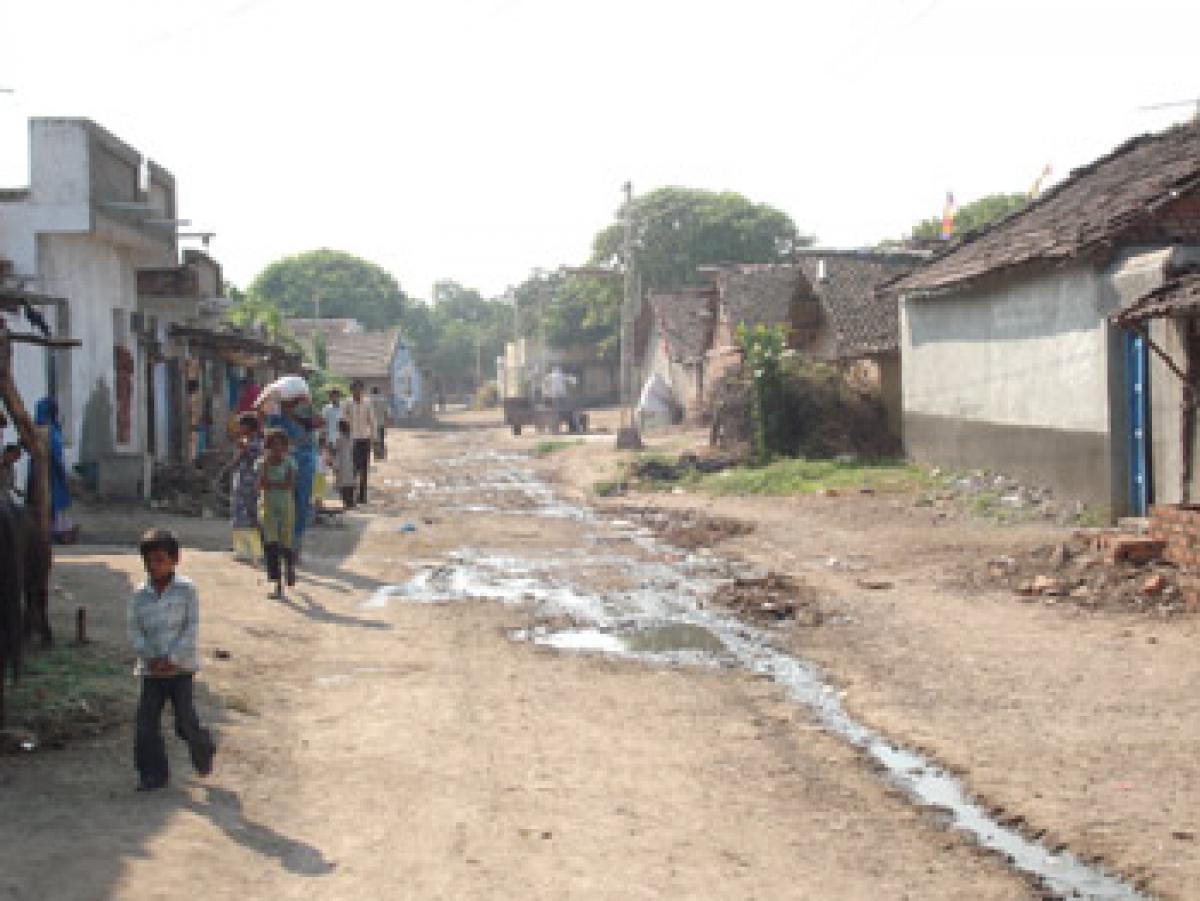Live
- Air ambulance for health emergencies: Helipad to come up in Victoria Hospital
- Karthigai Deepam Wishes: WhatsApp Status, Messages to Celebrate the Festival of Light
- Top Different Industry Trends of 2024 and What to Expect in 2025
- India’s Leading Lending Platforms: How Technology is Transforming Credit Access
- WhatsApp Update: WhatsApp To Add an In-App Translation Feature
- Govt healthcare: Long hours of unavoidable waiting for poor
- Readymade models rule the roost
- Teacher masterminds fake certificate racket!
- Villagers stage protest for road
- Daily Horoscope for December 13, 2024: What Are Your Stars Saying Today
Just In

Central government grants are a financial lifeline for panchayati raj or village-level institutions and urban local bodies, entrusted with essential sanitation and public health services in rural and urban India.
The failure to get Central funds due to them is largely because they did not fulfil funding conditions: holding elections, handling money and filing paperwork
Between 2010 and 2015, funding shortfalls to local governments nationwide rural and urban were as high as half the sanctioned amount and annual payments fluctuated extensively, with variations peaking in the slowdown years 2011 and 2012, according to a new paper.
Central government grants are a financial lifeline for panchayati raj or village-level institutions and urban local bodies, entrusted with essential sanitation and public health services in rural and urban India. The failure to get the money due to them is largely because they did not fulfil funding conditions: holding elections, handling money and filing paperwork.
Local bodies are the nodes to translate sustainable development goals into reality, said the paper, ‘Preserving the Incentive Properties of Statutory Grants,’ by Indira Rajaraman, Member of the 13th Finance Commission, and Manish Gupta, Deputy Director with the commission, published in the Economic & Political Weekly.
India has a lot of ground to cover in achieving sustainable development goals, the data reveal. Consider water and sanitation:
- Barely 30.80% of rural households get tap water; 70.60% of urban households do, according to the 2011 census.
- Only 6% of rural India and 44% of urban India are connected to a closed drainage system, according to the 2011 census.
- In urban India alone, no more than 30% of sewage generated by 377 million people flows through treatment plants, IndiaSpend has reported.
When local bodies fall short of funds, or are uncertain about steady income, public services suffer. The 13th Finance Commission designed local body grants for 2010 to 2015 as part unconditional – about two-thirds of the grant and part performance-based. All that States had to do to receive their basic grant was to hold local body elections, since the money can only be given during their term of office, and transfer previous dues to local bodies within five days of receiving them from the Centre.
Still, basic fund release to rural and urban local bodies across India fell short by six per cent over the five-year term. The average shortfall for 2011 and 2012 alone touched 13.75%, more than double the five-year average. Local bodies in only a handful of states received full basic grants over the five years.
Local bodies in eight states that held elections received no basic grants for one or more years, which means they failed to confirm that they had handed over funds from previous terms, the second requirement for disbursement. “Such administrative inability at the state level is a concern because the procedure was hardly complicated,” said Rajaraman.
Some states appear to lack administrative capacity to deal with the Centre’s bureaucracy. “Even when you meet the criteria, you need some skill to get funds released,” said Rajaraman. “Of the five states which managed to obtain both rural and urban grants in full for each of the five years: Haryana, Karnataka, Odisha, Rajasthan and Tamil Nadu, Haryana and Rajasthan have the advantage of geographic proximity to the Centre, which makes it easier to follow up with babus. Tamil Nadu is known to have above average liaison skills.”
Failure to disburse local body grants is Central failure as much as of states. The 12th Finance Commission permitted panchayats to use grants for local needs, subject to conditions. For instance, funds could be used to improve water supply and sanitation provided users paid for at least half the recurring cost. The 13th Finance Commission decided to loosen such specific conditions and strengthen general accountability. “Local bodies clamoured for some leeway to match resources to local needs,” said Rajaraman.
“Yet, with a few exceptions, they were poor in record-keeping. So, we designed the performance-based component of local body grants, the second component.” To qualify for performance grants, states were given a year to ensure local bodies kept audited books of accounts and appointed a local ombudsman for complaints. It may not have been enough time.
Over the five years, a quarter of performance grants were not released, increasing to 35.85% and 46.2% in the two economically troubled years. Six states did not qualify for the rural performance grant in any year and 11 did not qualify for the urban grant. Lapses occurred at the Centre as well. Stopping payments to non-performing states was a violation of the terms of the 13th Finance Commission, which had said that half the money set aside for non-performing states would be divided among all states performing as well as non-performing. (In arrangement with IndiaSpend.org, a data-driven, non-profit, public interest journalism platform)

© 2024 Hyderabad Media House Limited/The Hans India. All rights reserved. Powered by hocalwire.com







